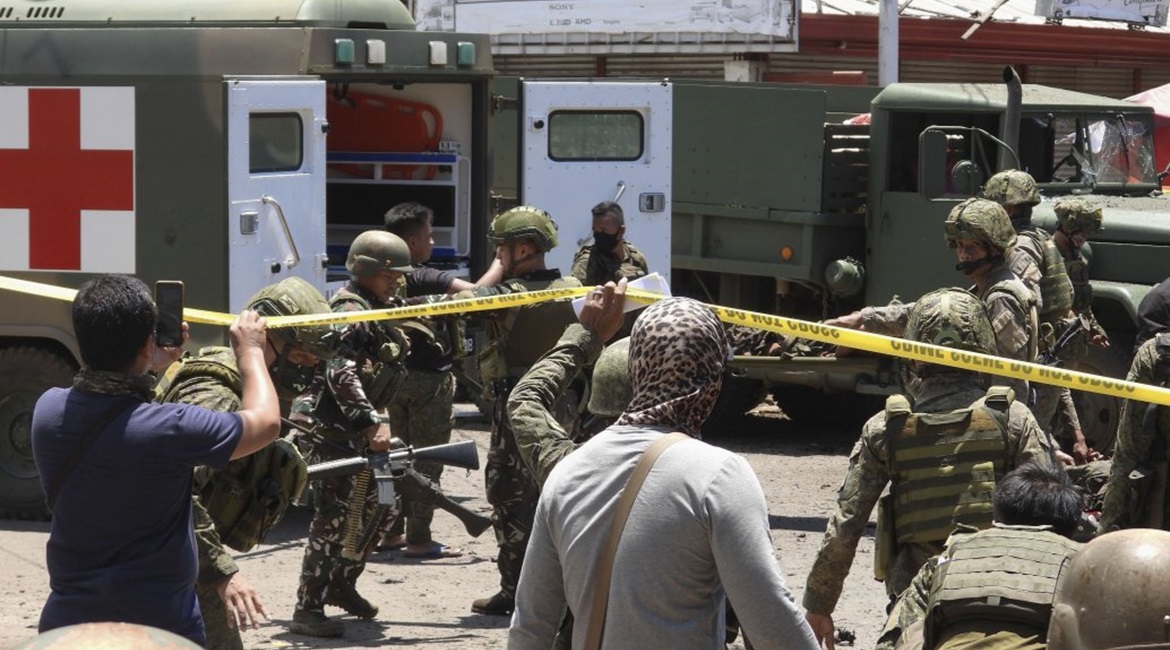
On 24 August, co-ordinated twin suicide improvised explosive device (IED) attacks took place on the island of Jolo in the Philippines’ Sulu province, killing at least seven soldiers, one police officer, and six civilians. A further 21 soldiers, six police officers, and 48 civilians were wounded. General Cirilito Sobejana, commanding officer of the Philippine Army, told ABS-CBN that the first explosion, which took place at about 1155 am, was caused by the detonation of an IED by a suspected female suicide militant. Initial reports suggested that the IED had been attached to a motorcycle, but those have yet to be confirmed by the authorities. The detonation was conducted beside a military vehicle in the Barangay Walled City, the busy commercial centre of the island, where security forces were assisting local officers in conducting Covid-19 relief efforts.
As investigators inspected the scene of the initial attack, a second female suicide bomber attempted to breach the security cordon, detonating her device at approximately 1315 hrs, according to Colonel Ronaldo Mateo, a military spokesperson quoted in The New York Times . The second explosion took place about 100 m from the site of the first bombing.
At the time of writing, no group has issued a claim of responsibility. Nonetheless, Colonel Mateo stated that authorities believed Abu Sayyaf Group (ASG) to be responsible, given the group’s capabilities and presence in the area. An ASG faction, led by Hatib Hajan Sawadjaan, has a large base on the island and has claimed responsibility for previous suicide attacks there, notably the bombing of a Catholic church in January 2019. Sawadjaan also serves as the leader of the Islamic State’s Wilayat Sharq Asiyya (or East Asia Province), having assumed the position after the death of Isnilon Hapilon in October 2017.

Looking to read the full article?
Gain unlimited access to Janes news and more...






